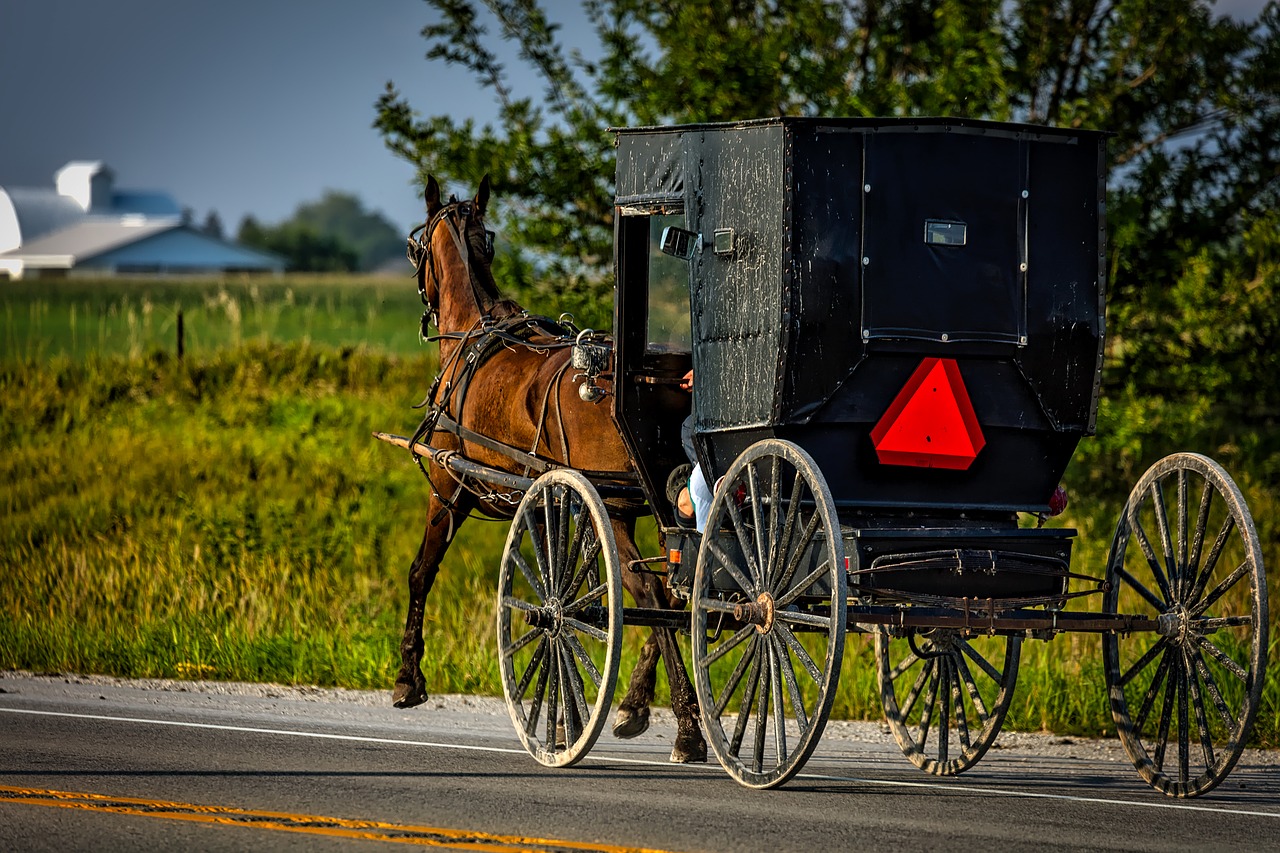
With the increase in accidents involving buggies and automobiles, the Michigan State Legislature is reviewing a three-piece package of legislation known as the “Buggy Bills” to improve road safety.
In the past 11 months, Michigan has seen six accidents involving buggies and automobiles, including one southwest of Hillsdale that injured a family of four. A month earlier in Mecosta County, six children were injured when a vehicle struck their buggy, and in June, another accident claimed the lives of three children.
The goal of the bills is twofold: first, increase safety for both the people driving the buggies and those sharing the roads with them and, second, reduce the damage caused to the roads by the buggies’ steel wheels.
State Sen. Mike Shirkey (R-Clarklake) is sponsoring one of the bills. He said the legislation was born out of the “increasing challenges with the Amish lifestyle creating situations that endangered safety” for both parties.
Before drafting any legislation, however, Shirkey spent the summer of 2017 meeting with a dozen Amish bishops in Michigan, making the case that safety regulations were needed and seeking to find a compromise.
“The Amish are so kind and so genuine and seemed so engaged,” Shirkey said.
Shirkey said they met over the summer, and he asked if they could put together a voluntary proposal. They told him they would have that ready in September.
But by the time September came along, Shirkey said it was “abundantly clear” that nothing was going to be accomplished.
“We met and I asked, ‘Do you have a proposal? Any ideas? Any sketches for what you would be alright with?’” Shirkey said. “They were silent. I looked them all in the eye and said I’d satisfied my commitment to try to do this without government intervention, so we’re going to proceed.”
The result was a trio of bills modeled after laws in Indiana and Pennsylvania, which also have large Amish populations.
Senate Bill 642 would allow counties to require buggy owners to register their buggies before operating them on public roadways and ensure that a horse-and-buggy driver manual be available to the public.
SB 643 would require horse-drawn vehicles to be equipped with at least two illuminated devices on the front and rear of the buggy visible from at least 500 feet away.
SB 644 would require all vehicles, including horse-drawn vehicles, to be equipped with tires made of rubber or similar materials while using a public highway. This bill also would ban carbide on the bottom of horseshoes, which is notorious for tearing up roads.
State Rep. Eric Leutheuser (R-Hillsdale) is championing this legislation in the House.
“I was born and raised here, and there’s never been a time when there wasn’t an accident,” Leutheuser said. “The thinking was always that it would be too hard to get something passed. But people are interested in this all over the state, so it wasn’t just unique to our area. We found more interest in it than we thought as we had conversations about it over the years.”
James Hohman, director of fiscal policy for the Mackinac Center for Public Policy, said the legislation seeks to offer a practical solution to a real challenge.
“Roads are engineered to be used for their primary motor vehicle users, but the roads are available to people using other vehicles,” Hohman said. “The problem is that the differences in speeds and safety features make it dangerous for different kinds of vehicles to use the roads at the same time. The bills look like an attempt to address that problem and to also prevent use from other vehicles from causing damage to the roads.”
Both Leutheuser and Shirkey said their only motivations in the legislation is public safety.
“I think the only thing that would be controversial would be that people might fear that we’re picking on the Amish in a sort of heavy-handed or unfeeling way,” Leuthueser said. “But this is an unreasonable claim. No one is claiming that these communities are somehow less than neighbors or that they’re second class citizens because they’ve got horses or don’t have lights.”
Shirkey concurred.
“There have been previous attempts to do this, and people have framed it as a being punitive to the Amish,” he said. “This is just the opposite. I’m sincerely looking out for the interests of the Amish and public safety.”

